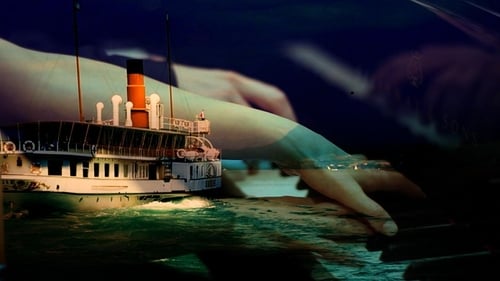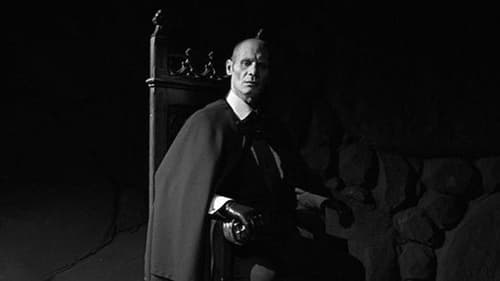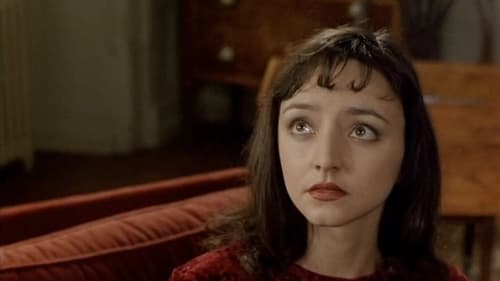Nuno Melo
출생 : 1960-02-08, Castelo Branco, Portugal
사망 : 2015-06-09

In 2016, Edgar Pêra released The Amazing Spectator, a playful investigation into cinema’s disquieting essence that had everything from negative film images of boobs and positively splendid interviews to a donkey hand puppet. The film and an accompanying book formed his PhD thesis. But as so often with him, projects turn into obsessions – especially when there are masses of notions not pondered, thoughts not elaborated upon. And so KINORAMA - Beyond the Walls of Cinema was born, a stand-alone continuation of The Amazing Spectator that looks at cinema’s future in cyberspace and, accordingly, perhaps the end of its enslavement to figurative representation, the 'stupid sacred in narrative cinema' (to use a Pêra’ism), realism and artificiality in 3D cinema, and many other aspects.

Manuel
Idling afternoons, drugs, heartbreaks, psychedelic moods immersed in music. An adrenaline rush. Lisbon as the backdrop for a drifting youth.

New film directed by Edgar Pêra.

Marco
Something unexpected brings Vitor back to the house where he was born. His return awakes ghosts from the past and a war long ago locked within this family.

A kino-investigation about spectatorship, a continuous conversation between different kinds of spectators: which one is more cinema: Citizen Kane on a mobile phone or a football game projected in a cinema theatre? What is the cinema of uncertainty? How many kinds of amazement exist? Does fear and belief precede amazement? What are the rights and duties of the spectator? Is the essay film a manifesto against voyeurism? Should spectators be paid? What amazes the spectator of this day and age?

Ricardo
João, a homosexual individual develops amnesia and forgets that he's homosexual.

Chico
When an actor assists to the premiere of the experimental B-movie he stars in, film blends with real life, turning it into an actual thriller.

A dreamlike journey seen through the eyes of a trans-human as well as a kino-symphony of voices from the multiple personas of Fernando Pessoa, Lisbon Revisited shows alternative ways of looking at and hearing the city. Celebrating its greatest phantom and confronting his ambiguous and pervasive sexuality, the film is spoken in the three languages in which Pessoa wrote, Portuguese, English and French.

Branco
Portugal, 2013, election day. The 'Troika' and the IMF have ruined the country. A patriot man will make a difference. Even if against...everyone.

Arnaldo Zeus
A triptych of short stereoscopic films by Peter Greenaway, Jean-Luc Godard and Edgar Pêra. Includes "The Three Disasters" by Godard, "Cinesapiens" by Pêra and "Just in Time" by Greenaway.

Capitão
This is the story of a man who after living over ten years isolated away from his country, returns to avenge His brother's death. Inspired by the writings of David Henry Thoreau, he is translating 'Civil Disobedience' into Portuguese. The action is set between 1908 and 1910, between the assassination of the Portuguese King and Prince and the creation of the Portuguese Republic, an era where anarchists who fight against the monarchy often cross the path of burglars. On a country where corruption is set, the state representatives try to rob, arrest and kill innocents. The main character faces the tyranny of the state and tries to save the rest of his family. But this is a country where nothing changes.

Hugo
The story of Jorge, an ambitious hacker with few scruples, which is discovered to divert money from the company where he works and decides to flee. In flight, turns out to have an accident during a snowstorm and, despite being in despair, eventually finding a home.

The Baron
A school inspector travels to the baron’s fiefdom to write a report on a heathen teacher. Having arrived, he is invited to stay with the baron, who makes predictions about women, horses and politics while the mysterious Idalina serves food and drink. The inspector becomes inextricably entangled in the baron’s world.

Crime Blue Abyss Physical Remorse is inspired by the life and works of Amadeo de Souza-Cardoso. This controversial 20th century painter defied the world avant-garde of his time: “I don’t follow schools. I am an impressionist, cubist, futurist, abstractionist. A melting pot. The real tradition is not to try and relive the past – which is impossible to achieve – but rather something that sets up a follow-through, as happens with parents and children. A child and his father are never alike.” The film follows Amadeo’s motto. It crosses pictorial fiction – suggested by the emblematic picture “The Procession”, painted in Paris in 1913 – with Portuguese contemporary reality.

Guitarrista
In this evocative story told ingeniously with minimal dialogue, men and women from various backgrounds and places each deal with the loss of a loved one.

A bizarre and tragic ballad of an impossible love between a nameless topographer and Leonor in a swamp soon to be destroyed by the forces of Man. She (Teresa Salgueiro, ethereal voice of Madredeus) is the “swamp-flower”, protégée of a Socratic Director (and his goat Plato). In a world without women, she is kept safe from the temptations of the flesh by her strict and grotesque Aunt. The sound-track entirely played by the workers (fado and bossa nova singers) reveals parallel narratives of suspicion and conspiracy that unfold to the pace of the unconscious leading to a confrontation between Man and River. Inspired by a hypnotic story by Branquinho da Fonseca (1905-1974).

Ice Cream Man

Joaquim

Salvador
Free adaptation of Sophocles classic tragedy “King Oedipus” crossed with Jack Kerouac's classic “On the Road”. The starting point is the loss of identity of a generation of Portuguese emigrants. Tebas tells the story of a young man who, looking for his origins, departs from Paris to Portugal with a beatnik truck driver. The film is a voyage into the strange depths of Portugal in the form of surreal road-movie.

José Eduardo
O Crime do Padre Amaro ("The Crime of Father Amaro") is a novel by the 19th-century Portuguese writer José Maria de Eça de Queiroz. It was first published in 1875 to great controversy.

Man
Short documentary about football (soccer) supporters in Portugal

Guilherme
A man who grew up in the '80s, in the midst of the pirate-radio scene, works now at a big, modern radio station, but still holds on to his love for a mysterious female lead singer of a now long gone band. He sets himself to start another pirate-radio, now unlegalized, trying to find her.

Ricardo
Ricardo Monteiro is a successful television producer specialising in reality shows. He is 45 years old and he has just received an award for the most popular television show of the year, when he receives an ultimatum from his 18-year-old daughter Leonor. If he does not come home that same evening to celebrate her birthday he will never see her again. Ricardo is distracted by business or other commitments and he is too late for the last flight home. When he returns next day the apartment is empty and Leonor is gone. At first Ricardo thinks that it is only a game, but there are no phone calls or messages and after a while he gets worried and starts looking for her. He discovers that she has quit school without telling him and that she has lost all contact with her old friends. She has become a complete stranger.

Raúl Figueiredo
A 14-year-old kid, addicted to videogames, goes with his parents to a shopping mall and separates from them to go to a game store called UTOPYA. He doesn't come back. His parents get in despair, and his father tries everything he can to bring him back.

Antónyo Xoramyngas
An experimental and surreal film, a mix of weird and unusual "avant-gard" cinematography with some traditional icons of the Portuguese culture, like Fado or the typical neighbourhoods of Lisbon, in this case the "Bica" is a typical neighbourhood which is used as setting to the plot.

Anibal
Two sons dream of the return of their father who left fifteen years earlier, and all this time without any sign of life...

Joaquim
A touching and tragic real life story about a group of Portuguese fishermen who get caught in the middle of a storm in the Tejo river (Lisbon) and struggle to survive.

Armando
Zé Alberto and Laura are lovers, and have a clandestine and permanently threatened relationship. Zé Alberto is married to Fernanda, Laura's sister, whose husband is in prison for murder. Fernanda is aware of Laura's relationship with her husband and constantly threatens them to tell Armando everything. Laura and Armando have a daughter - Sónia - whose greatest defect is greediness and the highest quality to cover up her mother's romance with her uncle. The fear of the two lovers increases and events precipitate when they receive the news that Armando is about to go on parole ...

Gigolo in Bar
Young Jesus is taken on a vacation by his parents (Rita Blanco, Adriano Luz) to a deserted beach resort. They accidentally fall into overnight wealth after Jesus digs in the sand, uncovering a large drug stash. Others characters intersecting here include an alcoholic actress, a philandering banker, a general trafficking in arms, priests who close their church and head north as hitchhikers, politicians who watch an all-girl production of Julius Caesar, and beggars who recite a children's story in a huge heap of trash.

Thief
On a supermarket shelf, a particular alarm clock keeps blaring off-hand, upsetting the staff and the customers. Eventually, it's golden frame attracts the attention of a shoplifter, who is almost caught by security because of that feature. After escaping without paying from two other stores, the thief will come face to face with a cop - also wearing a long coat similar to the thief's - and the clock will blurt up again - in the wrong pocket.

The thug
Neglected by his parents, a portly teenager finds refuge with a gang of young thugs in Lisbon.

Customer
Pierre, a middle-aged tourist guide, is the victim of a sudden failure : he does not recognize anything about him any longer. He goes back home and in his apartment he finds a mysterious young man who tells him he is here to avenge a young woman who has taken her own life. What share of responsibility does Pierre hold in this situation?

Portrait of the last days of the life of Portuguese writer Camilo Castelo Branco.

Male Nurse
In a mental institution the patients see themselves as people like Jesus, Lázaro, Marta, Maria, Adão, Eve, Sonia, Raskolnikov, Aliosha e Ivan Karamasov, a Philosopher, a Profet, Santa Teresa d'Avila, reciting the Divine Comedy.

Bruno
Neves and his wife Celia are the owners and managers of the 'Little Star Pension', a familiar hotel that caters to bourgeois family and would-be actors, instead of the ill-reputed 'Good-Night Pension' (just across the narrow street), where gigolos, whores, and criminals of all sorts may go for a quick encounter. However, not all is well among the ten residents of 'Little Star Pension': each dialogue line from every hotel guest is evidence that he, or her, has a reason (actually, more than one) to hate Neves - to the point of wishing him dead. Carelessness (or devious intention) by one party will provide the means; another, will create the propitious moment; yet another, and then the rest of them will create the festive New Year's Eve occasion - to do with Neves forever! Obviously, only the famous world private-eye Hércules Pirôt can solve the crime... for which he is called by phone, even before the deed is done.

The tumultuous lives of a woman and her three daughters who used to live in Paris, and are now living in Bairro Alto.

Based on the work by Fernando Pessoa - a "message" about the destinies of Portugal - not just in isolation but looking at them as precursors and announcers of the fate of the entire planet.





























